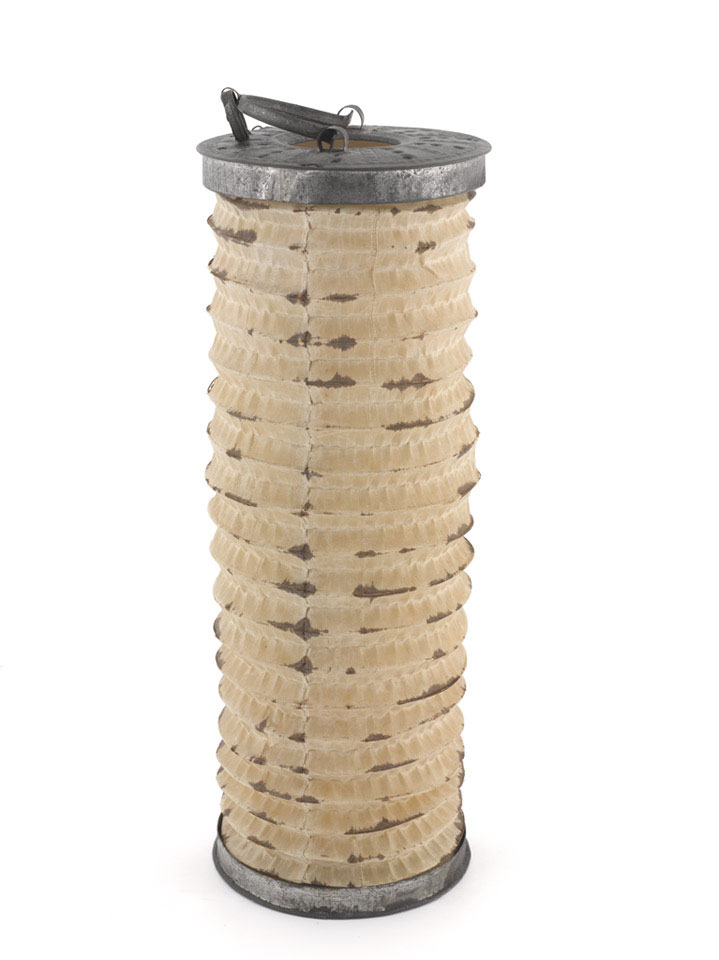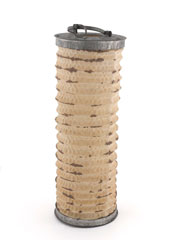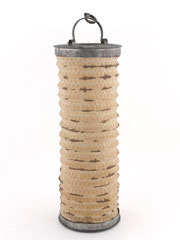
Online Collection
Paper lantern used by Florence Nightingale, 1855 (c)
Florence Nightingale (1820-1910) was famous for her work at the Military Hospital at Scutari in Turkey during the Crimean War (1854-1856). During her rounds there she used this paper lantern. At first, the male Army doctors did not want Nightingale and her nurses at Scutari and were contemptuous of their ability to help. After the arrival of fresh casualties from the Battle of Inkerman in November 1854, the staff were soon fully stretched. They now accepted the nurses' aid. The 'Lady-in-Chief', as Florence was called, improved medical and sanitary arrangements, set up food kitchens, washed linen and clothes, wrote home on behalf of the soldiers and introduced reading rooms. Before Nightingale nursing was not considered a respectable profession. With the exception of nuns, the women who worked as nurses were often ill trained and poorly disciplined.
Florence was determined to encourage educated, 'respectable' women into nursing. Her work in the Crimea set the standards for modern nursing and helped transform its public image. She became something of a legend in her own lifetime, but was publicity-shy and appalled at the adulation she received. One of the main creators of the Nightingale cult was Henry Wadsworth Longfellow who immortalised her as the 'Lady with a Lamp' in his poem Santa Filomena:
'A Lady with a lamp shall stand.
In the great history of the land,
A noble type of good,
Heroic Womanhood'.
NAM Accession Number
NAM. 1962-12-29-1
Copyright/Ownership
National Army Museum Copyright
Location
National Army Museum, Conflict in Europe gallery
Object URL
https://collection.nam.ac.uk/detail.php?acc=1962-12-29-1



